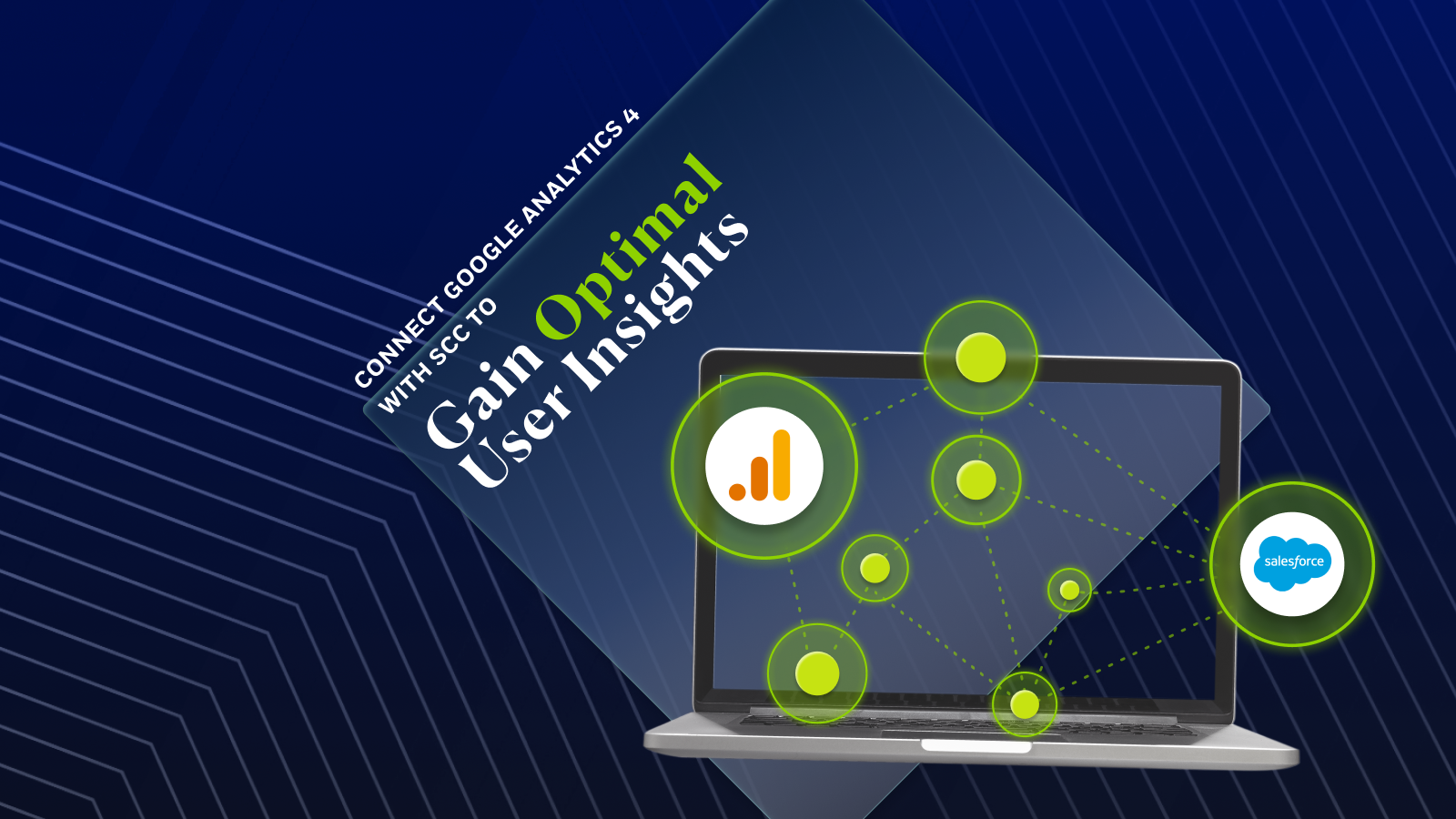Connect Google Analytics 4 with SCC to Gain Optimal User Insights
04 Dec, 2023 / 4 MIN read
In the dynamic world of e-commerce, harnessing the full potential of analytics is critical to understanding customer behavior and optimizing business strategies. Google Analytics 4 (GA4) is a game-changer in this space, and when integrated with Salesforce Commerce Cloud (SCC) using a robust data layer, it becomes a powerful tool for gaining deep insights into user interactions. In this article, we’ll explore the benefits of integrating Google Analytics 4 with SCC through a data layer and how this synergy can elevate your e-commerce analytics.
Why GA4?
Google Analytics 4 is the next-generation analytics platform that provides a more user-centric approach to tracking and analyzing user behavior. Unlike its predecessor, Universal Analytics, GA4 focuses on user engagement across multiple platforms and devices, providing a more comprehensive view of the customer journey.
How to Leverage GA4 for Salesforce Commerce Growth
Understanding the Data Layer
A data layer serves as a bridge between your website’s frontend and the analytics tools you use. It’s a JavaScript object that contains structured information about user interactions, page content and e-commerce events. Leveraging a data layer is especially crucial when integrating Google Analytics with SCC, as it ensures that the right data is sent to GA4 for comprehensive tracking and analysis.
Key steps for integrating Google Analytics 4 with SCC:
Audit, Installation and Configuration:
Prior to the integration, it is important to conduct an audit to identify the specific needs of the e-commerce. Once determined, we will configure the Google Analytics account.
Implementation of the Data Layer:
Based on the audit, the data layer will be created using JavaScript. This involves a development to measure user behavior, taking into account navigation, purchase process, conversions and other factors. You must ensure that the data layer is structured to include events and their dimensions to align with the GA4 event model.
Enhanced E-commerce Tracking:
Leverage the data layer to enhance e-commerce tracking in GA4. By capturing events like product views, add to cart and purchases, you can create a detailed picture of user behavior and the effectiveness of your sales funnel. This information is crucial for optimizing your e-commerce strategy.
Dynamic Pageview Tracking:
Implement dynamic pageview tracking using the data layer to capture changes in content without requiring a full page reload. This ensures that GA4 accurately reflects user interactions with dynamic elements on your site, providing a more granular view of engagement.
Custom Event Tracking:
Utilize the data layer to track custom events specific to your e-commerce goals. Whether it’s a user signing up for newsletters or engaging with promotional content, custom events allow for a more tailored analysis of user interactions beyond standard e-commerce events.
Cross-Domain Tracking:
If your e-commerce presence spans multiple domains, configure cross-domain tracking through the data layer. This ensures that user interactions across different domains are accurately attributed, providing a seamless and holistic view of the customer journey.
Benefits of GA4 Integration with the Data Layer:
Granular Insights:
The data layer enables detailed information to be transmitted to GA4, providing granular insights into user behavior, product performance and the effectiveness of marketing efforts.
Real-time Tracking:
With a well-implemented data layer, GA4 can track user interactions in real-time, allowing businesses to respond promptly to emerging trends and adapt marketing strategies on the fly.
Customization and Flexibility:
The data layer allows for customization, ensuring that you capture the specific data points relevant to your e-commerce objectives. This flexibility is crucial for tailoring analytics to your business needs.
Enhanced Marketing ROI:
By accurately tracking user interactions and attributing them to specific marketing efforts, GA4 integration through the data layer enables businesses to measure and optimize the return on investment of their marketing campaigns.
Google Analytics and SCC: the perfect match
The decision to connect your Google Analytics 4 (GA4) account to Salesforce Commerce Cloud using a well-structured data layer is a strategic move for businesses aiming to elevate their e-commerce analytics. The Salesforce Commerce Cloud-Google Analytics 4 synergy empowers organizations to capture, analyze and act upon granular user data, ultimately leading to more informed decisions and a competitive edge in the ever-evolving e-commerce landscape. As you embark on this integration journey, remember that the data layer is the linchpin that ensures the seamless flow of valuable information between your e-commerce platform and GA4, unlocking the full potential of your analytics efforts.
Keen to grow your ecommerce? Check out our blog for expert insights and actionable pointers.






















